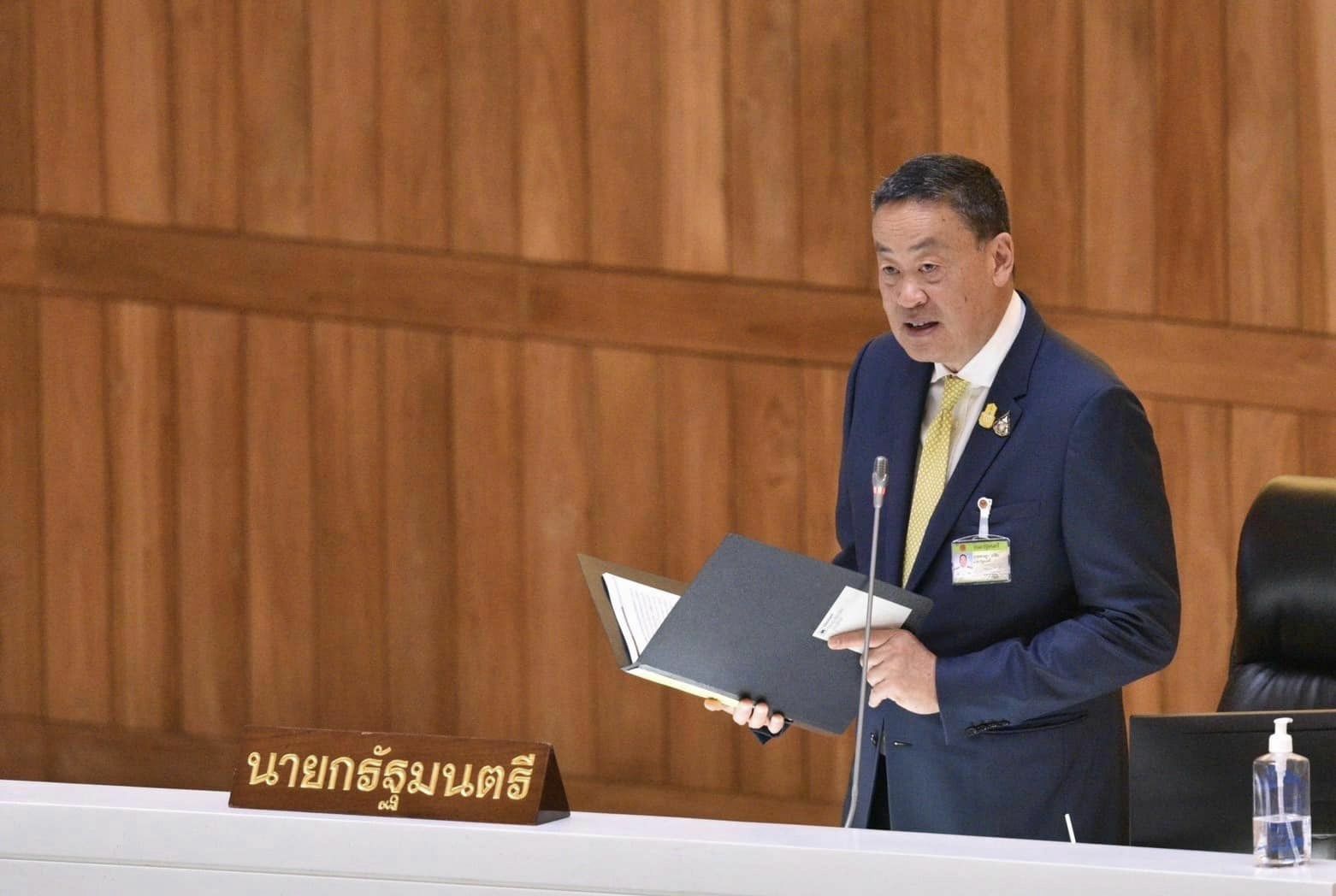Thailand’s 1-trillion-baht Land Bridge megaproject receives robust defence

The Land Bridge megaproject, a 1-trillion-baht initiative in Thailand, received robust defence from Prime Minister Srettha Thavisin and Pheu Thai MPs on Thursday. They stated that the project, designed to boost the country’s economy and development, could significantly improve the national economy if successful.
PM Srettha, during the House debate on the 2024 fiscal budget, argued that the Land Bridge megaproject could position Thailand as a global logistics hub and enhance the country’s competitiveness. Furthermore, it could alleviate the pressure on the Strait of Malacca, through which 60% of the world’s consumed oil passes.
“The government conducted this megaproject with the current geopolitical scene in mind, as the country has no conflicts with other nations.”
The 61 year old Thai PM believes the project would enable other countries to utilise Thailand as a transport centre.
PM Srettha also pledged to hold a public hearing with locals in Ranong and Chumphon provinces, the intended locations for the megaproject, and investors to discuss the project’s impact.
A Pheu Thai list MP, Sriyada Palimaphan, stated that the government has concluded its reports on the project, including the South Economic Corridor, in preparation for potential approval.
“A study showed this project will increase the GDP by 1.5%.”
According to Sriyada, the megaproject’s launch is timely, given the global transport providers’ worries over congestion in the Malacca Strait. She revealed that the project’s planning began during the Thaksin Shinawatra administration, with related projects undertaken during the Prayut Chan-o-cha government.
The Land Bridge project, valued at an estimated 1 trillion baht (US$28 billion), consists of deep-water ports in Ranong and Chumphon, a motorway to connect the two provinces, and a railway system. The project’s development plan includes the enhancement of the ports and the roads connecting them, with roughly 6.21 billion baht (US$179 million) allocated for land expropriation, reported Bangkok Post.
The project’s development is divided into four phases based on a timeline. The first phase is projected to cost around 610 billion baht (US$17 billion), the second 165 billion baht (US$4.7 billion), the third 229 billion baht (US$6.6 billion), and the fourth 85.1 billion baht (US$2.4 billion).
Latest Thailand News
Follow The Thaiger on Google News:


























